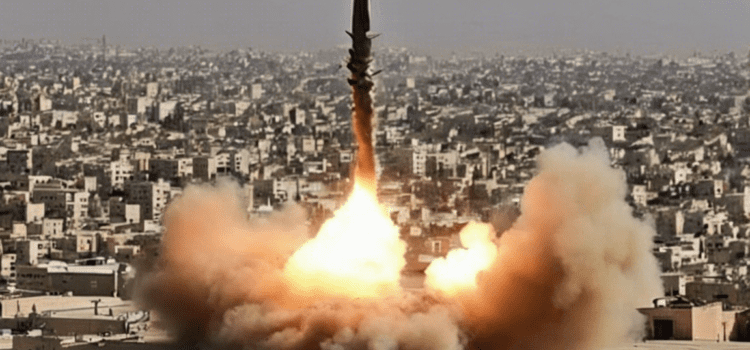In recent years, the tension between Iran and Israel has escalated, leading to several attacks and retaliations between the two nations. The conflict has deep historical roots and is influenced by a complex web of religious, political, and strategic factors. To understand the Iran attack on Israel, it is crucial to delve into the background of the two nations, the nature of their relationship, and the recent events that have shaped their interactions.
Historical Background
Iran and Israel have a long history of conflict dating back to the Islamic Revolution in Iran in 1979. The revolution led to the establishment of an Islamic republic, which viewed Israel as an enemy due to its support for the Shah of Iran and its close ties with the United States. Iran’s leadership, particularly under Ayatollah Khomeini, openly called for the destruction of Israel, leading to heightened tensions between the two countries.
Geopolitical Factors
Iran’s support for militant groups such as Hezbollah in Lebanon and Hamas in Gaza has also contributed to its strained relationship with Israel. Both Hezbollah and Hamas have carried out attacks against Israel, leading to Israeli retaliatory strikes against Iran’s allies. Iran’s growing influence in the region, particularly in Syria and Iraq, has also raised concerns in Israel, leading to preemptive strikes against Iranian targets.
Nuclear Program
One of the major points of contention between Iran and Israel is Iran’s nuclear program. Israel sees a nuclear-armed Iran as an existential threat and has lobbied aggressively against Iran’s nuclear ambitions. The 2015 Iran nuclear deal, which aimed to curb Iran’s nuclear activities in exchange for sanctions relief, was vehemently opposed by Israel, leading to further tensions between the two countries.
Recent Events
In recent years, there have been several high-profile incidents that have heightened tensions between Iran and Israel. The assassination of Iranian nuclear scientist Mohsen Fakhrizadeh in November 2020, widely believed to be the work of Israeli intelligence agency Mossad, led to threats of retaliation from Iran. In response, there have been a series of attacks on Israeli-owned ships in the Persian Gulf, which Israel has blamed on Iran.
Role of the United States
The United States also plays a significant role in the Iran-Israel conflict. While the U.S. is a close ally of Israel and has supported its actions against Iran, the 2015 nuclear deal, which was brokered by the U.S. and other world powers, aimed to normalize Iran’s relations with the international community. The U.S. withdrawal from the agreement in 2018 under the Trump administration and the subsequent reimposition of sanctions further complicated the situation and increased the likelihood of conflict between Iran and Israel.
Implications for the Region
The ongoing conflict between Iran and Israel has significant implications for the Middle East region as a whole. The involvement of other regional players such as Saudi Arabia, Turkey, and the United Arab Emirates further complicates the situation and increases the risk of a wider conflict. The proxy wars being fought in countries like Syria and Yemen also draw in Iran and Israel, exacerbating the already volatile situation in the region.
Future Prospects
The future of the Iran-Israel conflict remains uncertain, with both countries continuing to engage in a game of brinkmanship. The recent election of Ebrahim Raisi as the new president of Iran, a hardline conservative with close ties to the Supreme Leader, has raised concerns about further escalation in tensions. Israel’s new coalition government, which includes parties with differing views on Iran, also adds a layer of complexity to the situation.
Conclusion
The Iran attack on Israel is a multifaceted issue that is driven by historical animosities, geopolitical factors, and the nuclear ambitions of Iran. The conflict between the two countries has the potential to escalate into a wider regional war with far-reaching consequences. Understanding the complexities of the Iran-Israel conflict is crucial in order to work towards a peaceful resolution that ensures the stability and security of the Middle East.
Frequently Asked Questions (FAQs)
1. Why do Iran and Israel have such a strained relationship?
Iran and Israel have a strained relationship due to historical enmity, ideological differences, and geopolitical factors. Iran’s support for anti-Israel militant groups and its nuclear ambitions have further fueled tensions.
2. How does the United States influence the Iran-Israel conflict?
The United States plays a significant role in the Iran-Israel conflict as a close ally of Israel and a major player in the international negotiations surrounding Iran’s nuclear program. The U.S. withdrawal from the 2015 nuclear deal under the Trump administration has further intensified the conflict.
3. What are the implications of the Iran-Israel conflict for the Middle East region?
The Iran-Israel conflict has significant implications for the Middle East region, including the involvement of other regional players, the risk of wider conflict, and the exacerbation of proxy wars in countries like Syria and Yemen.
4. What recent events have heightened tensions between Iran and Israel?
Recent events, such as the assassination of Iranian nuclear scientist Mohsen Fakhrizadeh and attacks on Israeli-owned ships in the Persian Gulf, have heightened tensions between Iran and Israel.
5. What is the future outlook for the Iran-Israel conflict?
The future of the Iran-Israel conflict is uncertain, with the potential for further escalation in tensions given recent political developments in both countries. Diplomatic efforts and international mediation may be necessary to prevent a wider conflict in the region.
